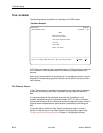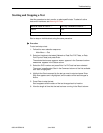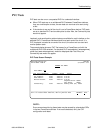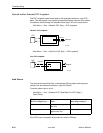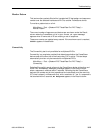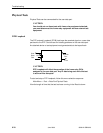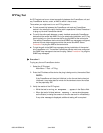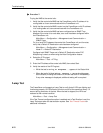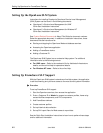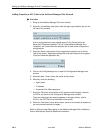
Troubleshooting
8-21
9820-A2-GB20-20
June 2000
IP Ping Test
An IP Ping test can be run to test connectivity between the FrameSaver unit and
any FrameSaver device, router, or NMS to which it has a route.
Times when you might want to run an IP Ping test are:
H To test connectivity between the FrameSaver unit and any FrameSaver
device in the network to verify that the path is operational. Select Procedure 1
to ping any far-end FrameSaver device.
H To verify the entire path between a newly installed remote site FrameSaver
device and the central site NMS. During a remote site installation, an IP Ping
test is typically run from the remote site to ping the NMS at the central site.
The remote FrameSaver device must have SNMP trap managers configured,
and one of those trap managers must be the central site NMS. Select
Procedure 2 to ping the NMS at the central site.
H To test the path to the NMS trap managers during installation of the central
site FrameSaver unit. The remote FrameSaver device must have configured
the SNMP trap managers to be sent the ping. Select Procedure 2 to ping the
SNMP trap managers.
" Procedure 1
To ping any far-end FrameSaver device:
1. Select the IP Ping test.
Main Menu
→
Test
→
IP Ping
2. Enter the IP Address of the device the ping is being sent to, then select Start.
NOTE:
If the FrameSaver unit has just initialized, or the far-end device has just
initialized, it may take about a minute for the devices to learn the routes
via the proprietary RIP.
3. Verify the results of the IP Ping test.
— While the test is running, In Progress... appears in the Status field.
— When the test is finished, Alive. Latency =
nn
ms should appear
as the Status (
nn
being the amount of time the test took in milliseconds).
If any other message is displayed, additional testing will be required.




